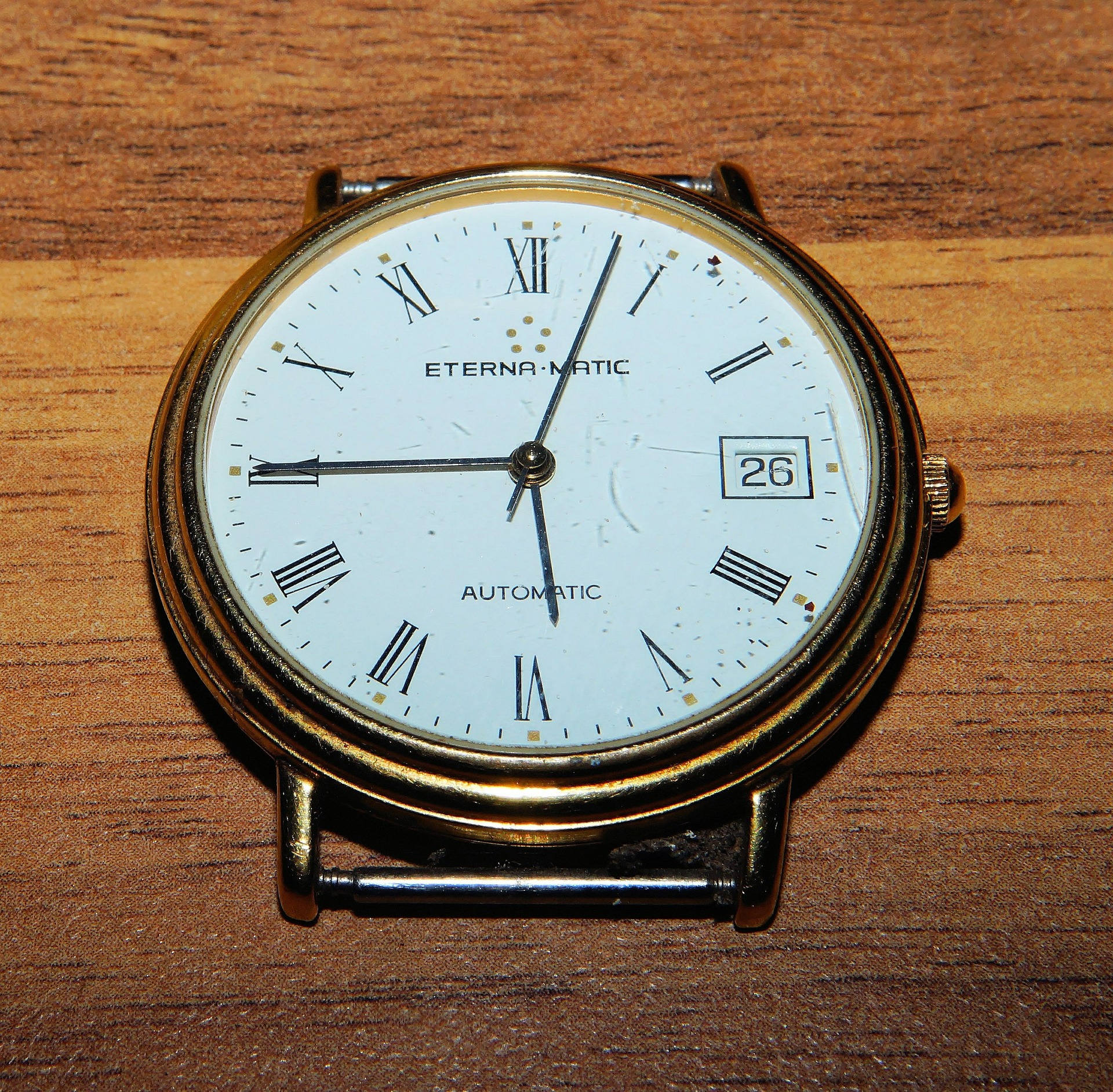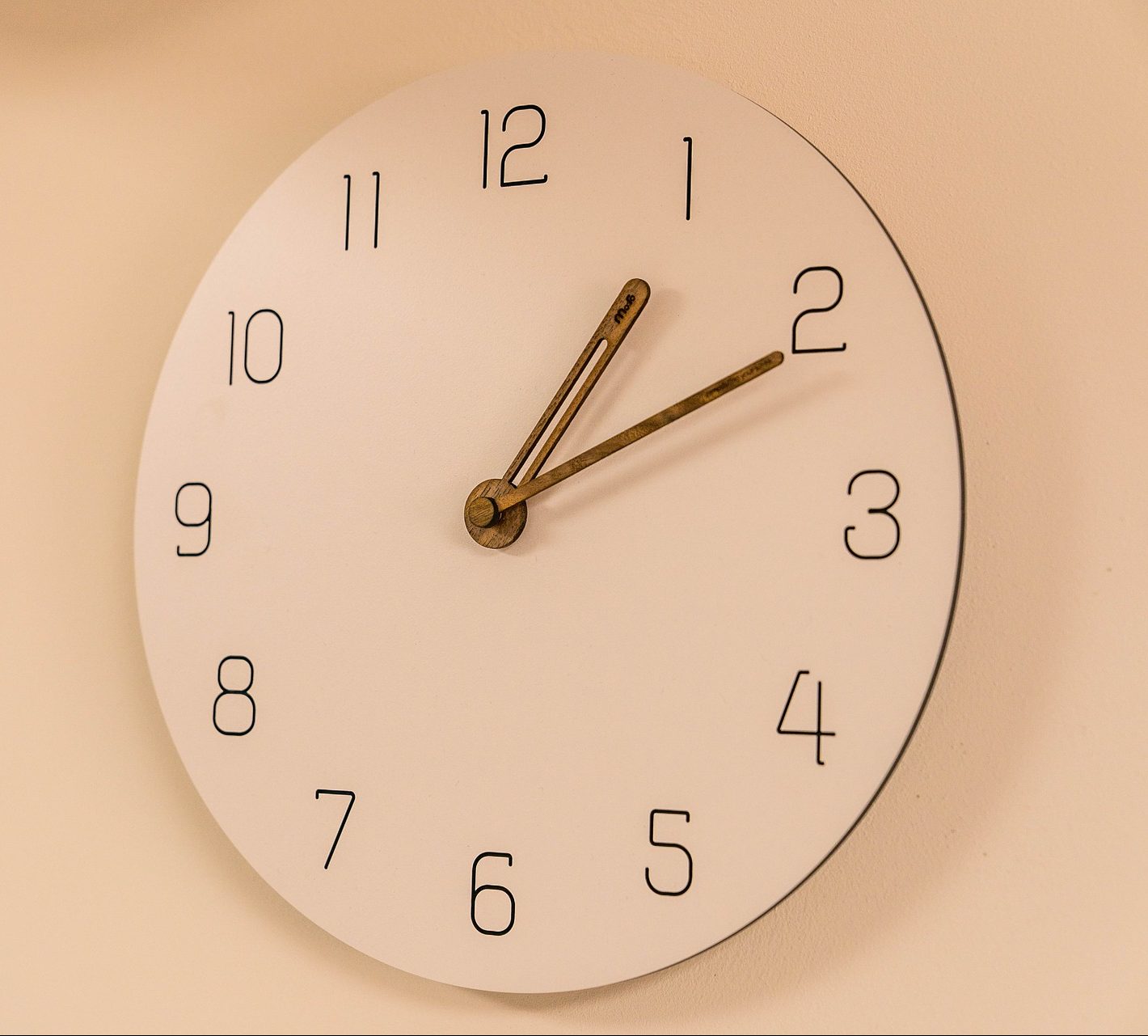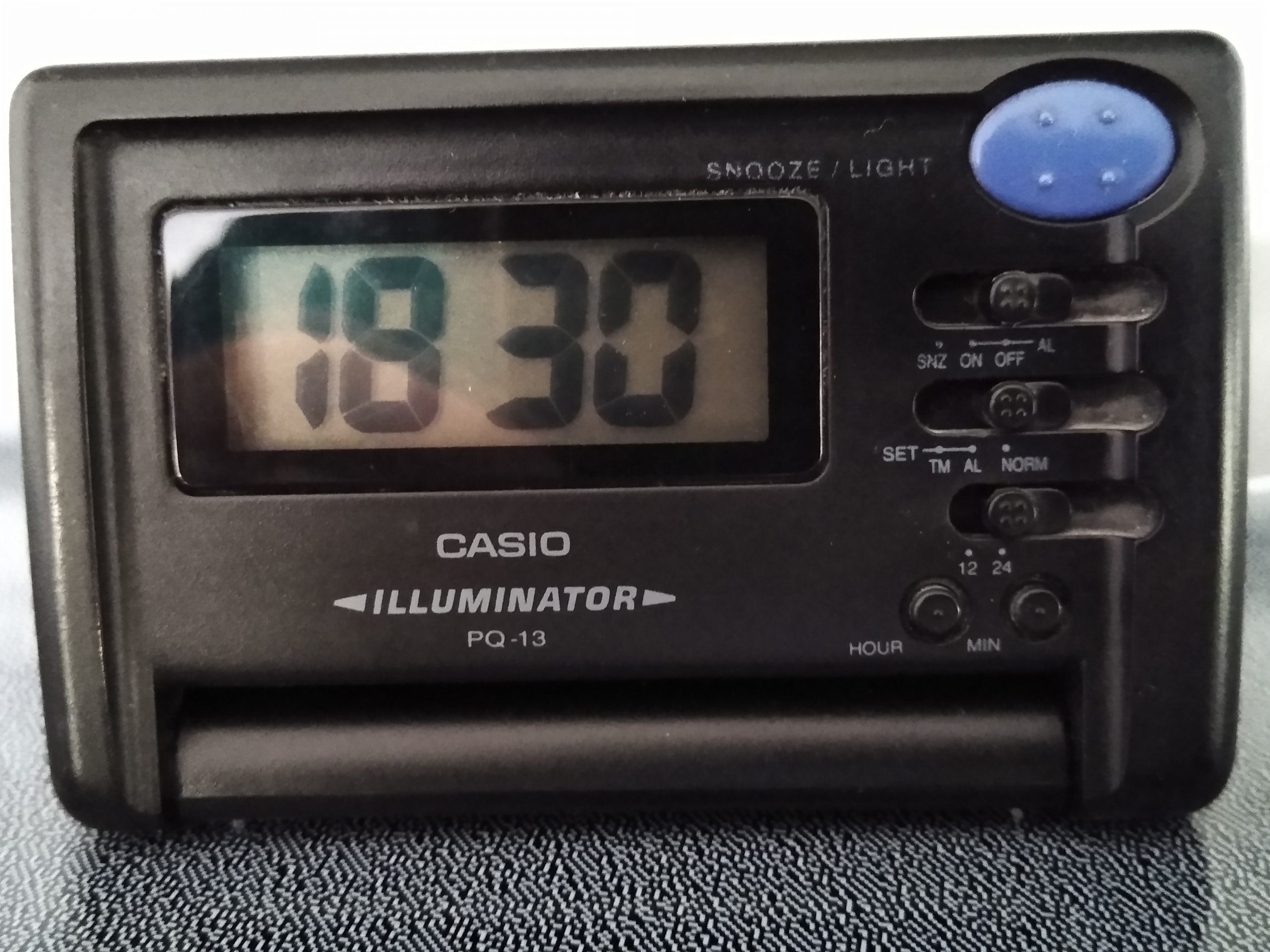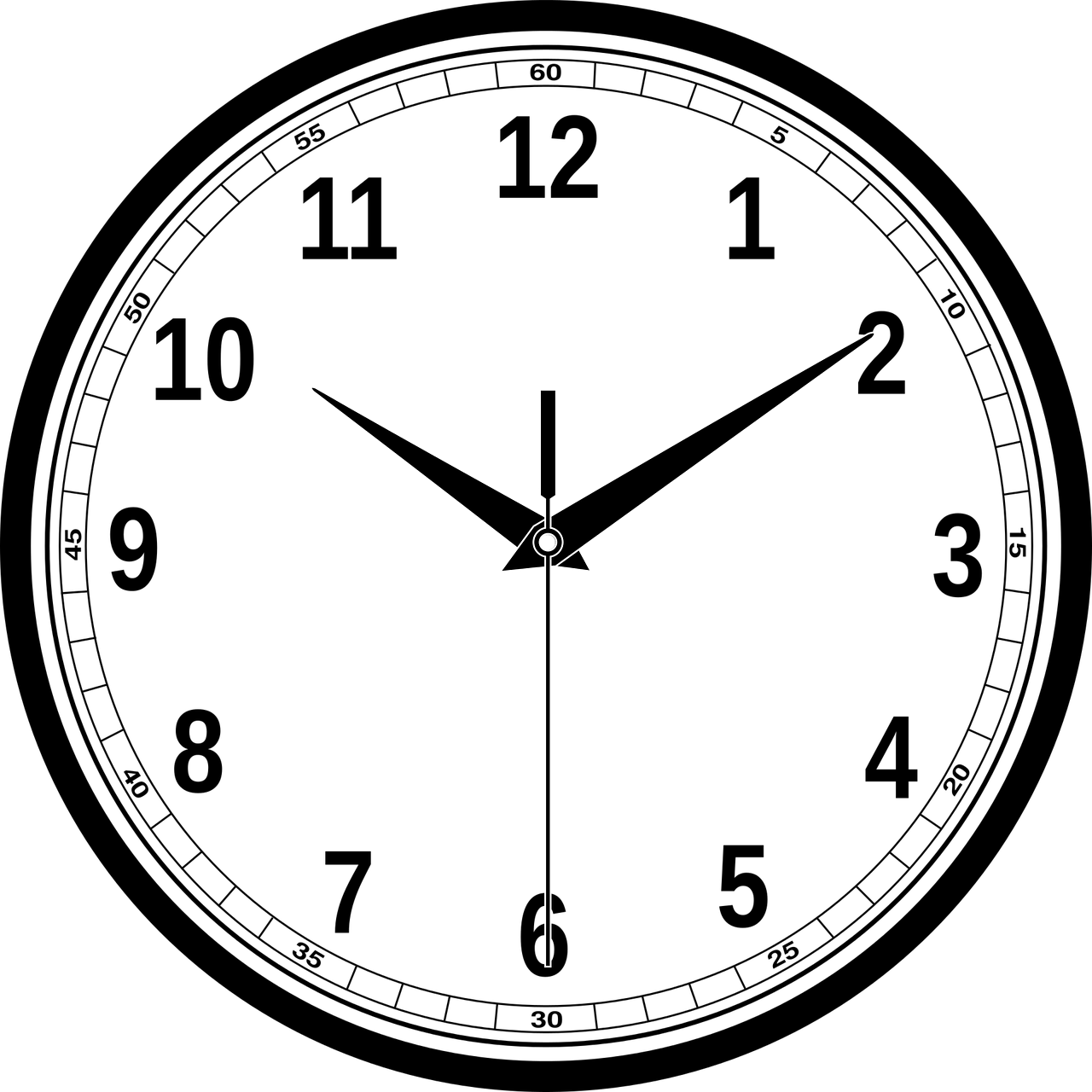Einheit 2.6 (online)
Uhrzeit
Usually, we express time in colloquial terms, just like in English, using a 12-hour clock.
 |
 |
 |
| Es ist Viertel vor sechs. | Es ist zehn nach eins. | Es ist halb sieben. |
(* You cannot use colloquial (inofficial) time with the 24-hour clock)
For some situations (train schedules, time announcements, programs, etc.), the 24-hour clock is used for formal (or official) time telling. You also need to include the word Uhr between the hour and the minutes.
| 17:45 | Es ist siebzehn Uhr fünfundvierzig. | 13:10 | Es ist dreizehn Uhr zehn. | 18:30 | Es ist achtzehn Uhr dreißig. |
In order to avoid confusion about the time of day, you could add the following adverbs of time which refer to different parts of the day:
morgens: in the morning nachmittags: in the afternoon
vormittags: in the morning abends: in the evening
mittags: around noon nachts: at night
For example:
 |
Es ist zehn nach zehn abends. |  |
Es ist Viertel nach zwölf mittags. |
This is particularly handy when you ask when an event is taking place or when you are meeting with someone and you need to be sure of the time, for example:
| Wann ist der Deutschkurs? – Um 9 Uhr morgens. |
When is German class? – At 9am. |
| Wann treffen wir uns? – Um 4 Uhr nachmittags. | When do we meet? – At 4pm. |
Notice that you have to include “um” in front of the time in your answer.
Ich habe um 13 Uhr Spanisch.
Similarly, when you indicate a specific day, you have to use “am” in front of the day:
Wann hast du Chemie? – Am Montag.
Was hast du am Dienstagnachmittag? – Am Dienstagnachmittag habe ich Biologie.
If you want to express a duration of time, you need to say: “von … bis”
Mein Deutschkurs ist von 11 bis 12 Uhr.
Ich habe von Montag bis Freitag Kurse.
When you talk about months or seasons, you use the word “im”:
Wann hast du Geburtstag? – Im April.
Wann ist das Wetter schön? – Im Sommer.
Im Herbst ist es oft windig und im Winter ist es kalt.
Here is a video to help explain everything you have just read about.
![]() Übung 1. Drag the time phrases to the correct time.
Übung 1. Drag the time phrases to the correct time.
[h5p id=”40″]
![]() Übung 2
Übung 2
[h5p id=”41″]
Word Order in Statements and Questions
Please work through the following presentation to learn about word order in statements and questions.
![]() Übung 3
Übung 3
[h5p id=”42″]
![]() Übung 4. Time to practice forming questions.
Übung 4. Time to practice forming questions.
[h5p id=”43″]
![]() Wortschatz in Quizlet:
Wortschatz in Quizlet:
![]() Take Quiz 7 on Canvas.
Take Quiz 7 on Canvas.
Extra Practice (optional):
![]() Video Serie – Nicos Weg
Video Serie – Nicos Weg
If you want more practice “understanding time and day”, click on the link and watch the video. Then click on “start” under the video and do the exercises.
Media Attributions
- clock
- clock
- clock
- clock
- star
- light-bulb
- check mark
- play
